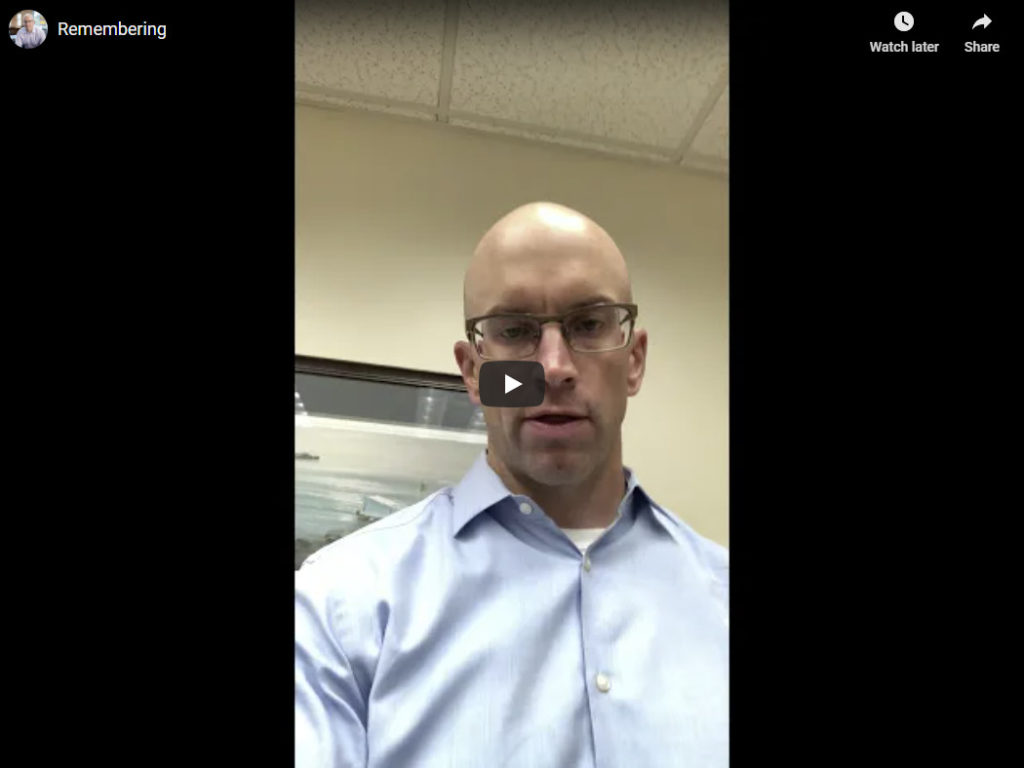I recently heard Jason Fried, CEO of Basecamp, talk about how he intentionally misses out on information so that he can increase his focus on matters of importance. Instead of the oft-used “FOMO” (Fear of Missing Out), Fried has coined the acronym “JOMO” (Joy of Missing Out) in its place. For example, Fried no longer monitors the news during the day. Rather, he reads an actual newspaper each morning (remember those?). This enables Fried to “joyfully miss out” on the latest news throughout the day. After all, the newspaper sums up the major events the next morning anyways, so why do we need to follow it in real-time?
If you have been reading my blog for any length of time, you know by now that the topic of attention fascinates me as a leader. It fascinates me because I care about people. I don’t want our team members being available all the time because every one needs breaks and rest. I also don’t want them being distracted by their work when they are with their families (and new grandchildren!). Of course I’d like our company to improve its efficiency and be less distracted as well. Duh. But, the human toll is what concerns me most. Too much information is being processed, and burnout is on the rise. While I can’t prove it, my hunch is that we are attempting to process too much, and in the process our attention is becoming more scattered.
JOMO is a new perspective to consider. I like it because it reframes the debate: could there be joy in missing out? That’s something rarely considered. I’m going to find out. Without further ado, here are a few ways I am working at implementing JOMO into my daily routine. After reviewing what I am doing, I challenge you to consider your own regime. What can you give up — joyfully — so that you can increase your attention and focus?
My changes:
-I have changed my notification settings on my iPhone. I have turned off all sounds, and “badge app icons,” and “show on lock screen.” I only allow notifications to be displayed in my “history” as “banners.” This means that I have to seek out information instead of getting the vibrating “jolt” I used to get. I realize this is only a baby step, but so far the practice has gifted me extra focus.
-I still allow for “reminders” and “calendar alerts” so that I don’t have to remember things. I mention because you don’t want to be distracted by remembering simple tasks. Automate when you can.
-I joyfully miss out on responding back to texts immediately. I don’t know if my friends appreciate this, but I no longer feel guilty about it.
-The next step is to “silence” text messages altogether. Upon posting this article, I am taking that plunge.
-I have started to place my phone on the table – ten feet away from me – when my wife and I have our “couch time” together after the kids go to bed. Because of what I am doing above, the only reason my phone vibrates is that someone is calling me. Our conversations have already gotten better.
-I am working at only using one electronic device at a time (one study claims that 88% of people watch T.V. And surf their iPhone at the time. As Curt Steinhorst says, “We can’t even focus on what used to distract us!”). I am doing this to exercise my attention muscles. Who knew watching the NFL, while NOT monitoring fantasy stats, could be good for my health?
-When a team member comes in to chat, I am turning OFF my computer screen. If it is on, I am tempted to check my email.
-Speaking of email, I am batching my email like I am forced to do when I travel internationally. This means that instead of monitoring it all day, I am processing and responding at given times throughout the day (of all these, this is the biggest work in progress).
-When I am tempted to text or email, I am picking up the phone and calling people more regularly than I used to. Why is this JOMO? It is JOMO because phone calls give me the joy of real communication instead of relying on digital. It also reaps the rewards of real connectivity, as opposed to perceived connectivity. Finally, it forces me to be more thoughtful in my responses, rather than “firing off another email.”
-I am rarely checking my social feeds unless I have to post a blog (Monday and Thursday morning), or alone on the road (a cheap connectivity thrill when I feel lonely and could use the jolt of dopamine that social media gifts). In fact, I have found social media to be a healthy “reward” when I don’t rely on in 24/7. Everything in moderation folks!
-I am reading print as much as possible (physical books over kindle and audible books, magazines over digital magazines, and eventually the physical WSJ over the digital version (I am too cheap to throw away the digital subscription I currently have!). I have discovered that focus and retention dramatically increases when I read hard copy.
You can decide if any of the above work for you. The point is two-fold: Consider lessening distracting inputs yourself, so that you can improve your own focus. And secondly, encourage and challenge your teammates to do likewise.
The benefit may be two of the greatest joys in the world…some unexpected free time and improved relationships!










